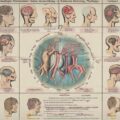Personality psychology is the study of the psychological forces that make people uniquely themselves. Rather than focusing on specific behaviors or life events, personality psychologists look at the whole person and how the various parts of themselves fit together in characteristic ways.
Key Concepts in Personality Psychology
Some key concepts in personality psychology include:
- Traits – Enduring patterns of thinking, feeling, and behaving that describe a person’s tendencies across situations.
- Self – A person’s conscious reflection on their own being or identity.
- Motives – Underlying needs or desires that drive behavior.
- Life stories – The narratives people construct by integrating life events into their self-concept.
Theories of Personality
There are several major theories of personality in psychology:
- Psychoanalytic theories – Emphasize the role of the unconscious and early childhood experiences in shaping personality, such as Sigmund Freud’s theory of the id, ego, and superego.
- Humanistic theories – Focus on subjective conscious experiences and people’s inherent drive to fulfill their potential, such as Abraham Maslow’s hierarchy of needs or Carl Rogers’ ideas about self-actualization.
- Trait theories – Describe personalities in terms of measurable traits that vary from person to person, such as introversion/extraversion in Hans Eysenck’s model or the Big Five factors.
- Social cognitive theories – Explain personality in terms of how we think about ourselves in relation to others and the social world around us.
- Behaviorist theories – View personality as determined by conditioning and reinforcement from the environment rather than internal traits or thoughts.
Examples of Personality Concepts
Here are some examples of key personality concepts applied to real-life situations:
- Traits – A shy person feels nervous about attending a party where they won’t know many people versus an outgoing person who eagerly anticipates the opportunity to meet new friends.
- Self – A thoughtful person contemplates whether their career truly reflects their deepest values and talents versus someone less self-reflective who simply flows from one job to another without much introspection.
- Motives – An ambitious person is driven to succeed by an intense inner need for achievement and mastery while someone more relaxed is content with a comfortable, moderate level of challenge and success.
- Life stories – One person constructs a narrative about overcoming disadvantages in early life to later redeem themselves through hard work and determination. Another views their life as a journey towards spiritual awakening.
Personality Psychology and Wellbeing
Understanding personality allows people to identify their own strengths, limitations, needs and tendencies. This self-awareness can help them make choices that lead to greater wellbeing. It also enables more compassion towards themselves and others as people come to respect the incredible diversity of human personality.
Frequently Asked Questions
What is the main focus of personality psychology?
The main focus is understanding whole persons in all their complexity – including their characteristic thoughts, feelings, and patterns of behavior across various situations.
What are the big 5 personality traits?
The big 5 personality traits are openness, conscientiousness, extraversion, agreeableness, and neuroticism – referred to by the acronym OCEAN.
What are some examples of healthy personality traits?
Some examples of healthy personality traits are emotional stability, flexibility, self-confidence, honesty, mindfulness, optimism, decisiveness, curiosity, and the ability to handle stress well.
How can understanding personality promote wellbeing?
Understanding personality allows people to nurture their strengths, manage their weaknesses, select compatible environments, set self-compassionate expectations, and appreciate the diversity of humanity.
What are some positive applications of personality psychology?
Some positive applications include education, business leadership development, inform therapy practices, conflict mediation skills, career counseling, relationship success principles, and promoting tolerance.









